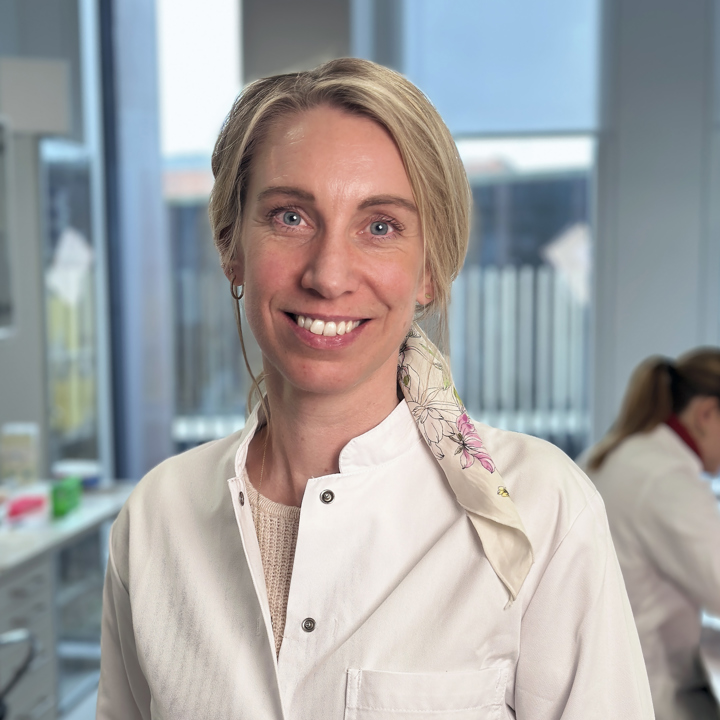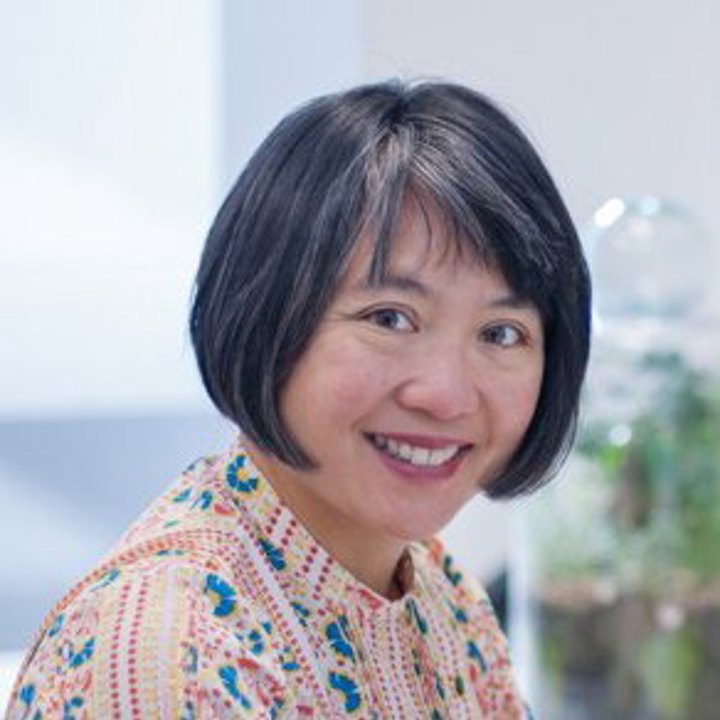
International Award
The International Award is presented annually and recognises outstanding and independent research that illustrates the importance of the molecular biosciences in the advancement of life sciences research.
The research should have been conducted outside of the UK and Ireland by a scientist of any nationality. The recipient will be expected to act as an ambassador for the Biochemical Society’s international activities.
Nominations for the 2027 Awards are now closed
Please keep an eye on our website and social media channels in April 2026 when the winners will be announced!
The recipient is given:
- A grant to attend a relevant event or training course
- A trophy
- The opportunity to present a lecture at a Society event or webinar
- An invitation to submit an article to one of our journals, with any fees waived
- The recipient will be expected to act as an ambassador for the Biochemical Society’s international activities
Eligibility criteria:
- Awarded annually
- Recognises outstanding and independent research that illustrates the importance of the molecular biosciences in the advancement of life sciences research
- The research should have been conducted outside of the UK and Ireland
- Nominees can be of any nationality
- Nominees are typically mid-career, within 10-20 years of receiving their highest qualification
- Nominees must demonstrate commitment to build, support, and nurture future talent
- This award is only open to individuals
Please note that career breaks are taken into consideration for the International Award. A career break is considered as any period of time where the candidate is out of work, for reasons including, but not limited to, redundancy, maternity leave, paternity leave, shared parental leave or adoption leave, extended leave to perform a carer role, long-term illness, disruptions caused by the Covid-19 pandemic, and/or as a consequence of relocation. If the candidate has taken a career break for maternity leave or shared parental leave, eligibility for the International Award will be extended by 12 months per child.
If you have any queries regarding the eligibility criteria for an award, please contact the Awards Team.
The Awards Committee will consider the following aspects of all nominations for the International Award as appropriate:
- Originality of research
- Impact of research
- Quality of outputs – publications and/or patents and/or software
- Commitment to build, support, and nurture future talent e.g., mentorship
- Other indicators of esteem demonstrated by the nominator

Upcoming Award Lecture
Renae Ryan will present her Award Lecture at the Membrane Proteins Conference between 7-9 April 2026 in Birmingham.
Register now!Contact us
For further information please get in touch with the Awards department.
Related content
5 itemsRecipients
Lykke Sylow
Lykke Sylow

The International Award will be presented to Dr Lykke Sylow in 2026. Lykke is a pioneering biochemist whose research has significantly advanced our understanding of muscle metabolism and its links to chronic diseases such as diabetes and cancer. Her work bridges fundamental biochemistry with translational applications, uncovering key biochemical mechanisms that regulate glucose uptake and muscle adaptation. Using innovative techniques such as Adeno-Associated Virus (AAV) delivery systems and inducible tissue-specific genetic editing, Dr Sylow has uncovered the interaction between muscle mass and insulin sensitivity through the TGF-beta pathway, with profound implications for metabolic disorders. Her research has also shed light on the role of the small GTPase Rac1 in glucose uptake, a pathway disrupted in type 2 diabetes and obesity.
Dr Sylow’s impact extends beyond academia, with her biochemical insights informing clinical trials and therapeutic strategies for muscle wasting in obesity, aging, and cancer. She collaborates with industry partners, including Insilico Medicine and Pephexia Therapeutics, driving drug development initiatives. Her publications in leading journals such as Nature Communications, Science Advances, and PNAS have earned her over 4,000 citations, reflecting the widespread influence of her work.
A dedicated mentor, Dr Sylow actively supports young researchers through structured mentorship programs and teaching at the University of Copenhagen, fostering excellence in scientific culture. Through her leadership and groundbreaking research, Dr Sylow is shaping the future of biochemistry and its application to metabolic health.
Lykke said: "I am truly honoured to receive this recognition, not just for myself, but on behalf of the incredible colleagues, collaborators, and students who have made our discoveries possible. This award highlights the importance of bridging biochemistry with medical research to address critical health issues, and I am deeply grateful for this acknowledgment and the attention it brings to this vital field.”
Renae Ryan
Renae Ryan

The International Award will be presented to Professor Renae Ryan in 2025. Renae Ryan is a Professor of Biochemical Pharmacology and an Australian Research Council Future Fellow at the University of Sydney, Australia. Her research team investigates the molecular mechanisms of membrane transport proteins, combining functional analysis with structural biology techniques to uncover the molecular architecture and choreography of neurotransmitter transporters and their link to neurological diseases, such as episodic ataxia.
After receiving her PhD from the University of Sydney in 2004, Renae was awarded an Australian National Health and Medical Research Council CJ Martin Fellowship and completed postdoctoral work in the laboratories of Eric Gouaux at Columbia University and Joe Mindell at the National Institutes of Health (NINDS). Renae returned to the University of Sydney in 2007 and was awarded an Australian National Health and Medical Research Council Career Development Fellowship to establish her own group in 2010.
She has received several awards for scientific excellence, mentoring and outreach including the Nancy Millis Medal from the Australian Academy of Science and the Australian Museum Eureka Prize for Mentoring of Young Researchers. Renae is a globally respected leader and advocate for gender equity, diversity and inclusion, and a sought-after supervisor, mentor, and role model for women in science.
Renae said: "It is a great honour to receive the Biochemical Society International Award. This award recognises the hard work of the talented students, early-career researchers, and collaborators I am fortunate to work with. I want to thank my mentors and supporters and the Australian National Health and Medical Research Council and the Australian Research Council for funding me and my team over the last 20 years. This recognition will profile our research and inspire us to keep exploring the molecular basis for transporter-related diseases."
Marnie Blewitt
The 2024 International Award will be presented to Professor Marnie Blewitt. Marnie’s lab focuses on understanding the mechanisms of epigenetic control, and how such mechanisms can be manipulated in the context of disease. She uses functional genetic screens to identify epigenetic regulators, which she started as a PhD student with Emma Whitelaw at The University of Sydney. After graduating from her PhD in 2005, Marnie took up an Australian National Health and Medical Research Council post-doctoral fellowship with Prof. Doug Hilton at WEHI to work on the novel protein SMCHD1 that she identified in her PhD. This work earned her the Australian Academy of Sciences Gani medal.
In 2010, Marnie established her own lab at WEHI as an Australian Research Council Queen Elizabeth II fellow, continuing to work on epigenetic mechanisms. During this period, Marnie created the first and very popular massively open online course on Epigenetic control via Coursera.org. Her recent work on SMCHD1 and mechanisms of epigenetic silencing earned her the Genetics Society of AustralAsia Ross Crozier medal. In 2017, Marnie created the Epigenetics and Development Division at WEHI, which she jointly leads with Prof. Anne Voss, as an Australian National Health and Medical Research Council Leadership fellow.
On winning the International Award for 2024, Marnie said: "This is an amazing surprise! I am very grateful for the award, which really recognizes the amazing work of all my wonderful past and present team members. I am so lucky to have had the privilege of working with brilliant scientists. Thanks to everyone."
Marnie presented her Award Lecture at the joint IUBMB-FAOBMB-ComBio BioMolecular Horizons 2024 meeting between 22-26 September 2024.
Antonina Roll-Mecak
Antonina Roll-Mecak

The 2023 International Award will be presented to Dr Antonina Roll-Mecak. Antonina is currently the Senior Investigator and Chief of the Unit of Cell Biology and Biophysics at the National Institute of Neurological Disorders and Stroke and holds a joint appointment in the Biochemistry and Biophysics Center at the National Heart, Lung and Blood Institute at the National Institutes of Health in the U.S.A. After completing her Ph.D. at Rockefeller University in structural biology of the protein synthesis machinery, she shifted gears and pursued mechanistic cell biology studies of microtubule cytoskeletal regulators as a postdoctoral fellow at the University of California, San Francisco. In 2010, she became an independent group leader at the National Institutes of Health where she started an interdisciplinary program focused on understanding how the genetic (isoform variation) and chemical diversity (posttranslational modifications) of tubulin regulates the dynamics and mechanical properties of microtubules and constitutes a code, a “tubulin code” that is interpreted by microtubule-based motors and associated proteins.
Antonina said: “I am thrilled to receive the International Award from the Biochemical Society. This award is a recognition of the wonderful work people in my lab have done throughout the years and spotlights the beauty and importance of the tubulin code which has emerged as an exciting frontier in microtubule biology. I thank Dr. Nico Tjandra for nominating me and for being a steadfast supporter since I arrived at the NIH. I am especially thrilled that my nomination was supported by Dr. Eva Nogales and Dr. Cynthia Wolberger, two amazing scientists who I have admired since I was a graduate student.”
Antonina presented her Award lecture at Dynamic Cell V on 19 April 2023.
James Murphy
James Murphy

The 2022 International Award was presented to Dr James Murphy. Dr Murphy is Head of the Inflammation Division at the Walter and Eliza Hall Institute of Medical Research in Melbourne, Australia. He completed his undergraduate studies in his home town of Christchurch, New Zealand, before completing his PhD studies at the Australian National University, Canberra, Australia in 2003. As a CJ Martin Fellow of the National Health and Medical Research Council of Australia (NHMRC), he completed postdoctoral training in the lab of the signalling guru, the late Tony Pawson (Toronto, Canada). He moved to the Walter and Eliza Hall Institute in 2007 and was appointed group leader in January 2015, Associate Professor in 2017 and Head of the Inflammation Division in 2019. He has pursued a mechanistic understanding of the roles of several pseudokinases, protein kinases, cytokines/receptors and epigenetic regulators in signal transduction, with a particular focus on MLKL, a key pseudokinase in the necroptosis cell death pathway. These studies have culminated in >130 publications to date.
James Murphy presented his award lecture at the joint IUBMB-FEBS-PABMB Congress on Monday 11 July 2022 in Lisbon, Portugal.
James said: “I am delighted and honoured to receive this award. I am grateful to the students, postdocs and technicians in my lab over the years for their contributions to science and for making the lab so much fun, our many collaborators, and our fantastic research facilities, which collectively have made our discoveries possible.”
Brandt Eichman
Brandt Eichman

The 2021 International Award was presented to Professor Brandt Eichman at the Vanderbilt University, USA. Brandt completed his PhD in biochemistry and biophysics from Oregon State University under the mentorship of P. Shing Ho. As a graduate student, he used X-ray crystallography to study the effects of anti-cancer drugs on DNA structure and determined the landmark structure of the Holliday Junction—the four-stranded DNA intermediate formed during genetic recombination. As an NIH postdoctoral fellow at Harvard Medical School with Tom Ellenberger, he has honed his interests toward the structural enzymology of DNA repair and replication proteins. Since joining the faculty at Vanderbilt University in 2004, Brandt and his laboratory continue to focus on the structural biology of protein machines involved in DNA repair and maintenance of genome integrity.
Brandt Eichmann presented his award lecture at the 86th Harden conference ‘Machines on Genes‘ on Wednesday 25 May 2022 in Alicante, Spain.
On winning the International Award, Brandt said: “I am honoured and delighted to be the recipient of the Biochemical Society’s International Award. This certainly would not have been possible without the hard work and creativity of the members of my laboratory. I thank my colleagues who made and endorsed the nomination and who have guided me over the years, and my family for their support and encouragement. This award will help maintain momentum within my research team, so that we may continue to approach what we feel are important and interesting questions related to genome maintenance.”
Wai-Hong Tham
Wai-Hong Tham

The 2020 International Award was presented to Associate Professor Wai-Hong Tham of the Walter & Eliza Hall Institute of Medical Research, Australia.
Wai-Hong’s research explores the mechanisms regulating successful infection of malaria parasites within the human host. Her team has identified human red blood cell proteins that serve as entry portals for malaria parasites. By providing an accurate molecular, biochemical and structural understanding of how malaria parasites infect red blood cells, her contributions provide insights into the rational design of novel inhibitors and vaccine targets against malaria. She has also identified parasite proteins that bind to human immune regulators to subvert the human immune system for parasite survival. Her group discovered the important role that parasite surface proteins play in immune evasion strategies; the discovery of structural scaffolds that unite the red blood cell binding domains of parasite adhesins and the identification of a new invasion pathway for Plasmodium vivax. These breakthrough discoveries significantly advanced understanding of the complex interplay between malaria parasites and the human host, and have led to the development of novel therapeutics against malaria.
Wai-Hong said: “I am absolutely delighted and humbled to be receiving this award. This award is a wonderful recognition of our research which would not have been possible without amazing collaborators, postdocs and research students and I am deeply grateful for their support. A significant part of this research has been carried out at the Walter and Eliza Hall Institute in Melbourne Australia, which always provide such an enriching scientific environment and a gaggle of supportive colleagues”.
Wai-Hong Tham presented her Award lecture on Wednesday 21 August 2019 at the ‘27th FAOBMB & 44th MSBMB Conference’ in Malaysia.
Job Dekker
Job Dekker

The inaugural International Award was awarded in 2018 to Job Dekker from the Howard Hughes Medical Institute and the University of Massachusetts Medical School. Job introduced the concept that matrices of chromatin contact frequencies can be used to determine the three-dimensional structure of chromosomes. Following this, Job invented the chromosome conformation capture (3C) technology to obtain such matrices and solved the first structure of a yeast chromosome in 2002.
Since then, his group has pioneered development and application of a series of molecular, genomic and computational approaches, such as 5C and Hi-C to map and analyze the three-dimensional folding of genomes at Kb resolution. His work had led to new insights into the internal organization of chromatin fibres, the formation of chromatin looping interactions involved in long-range gene regulation, the organization of the interphase nucleus, the structure of metaphase chromosomes, and the general folding principles of complete genomes. Recently his group has started to use 3D genome folding data for de novo genome assembly.
Of winning the International Award, Job said: “I am truly delighted to have been selected for the International Award. This really honours the work of all my team members, collaborators, and colleagues that is starting to reveal how our genomes are folded.”
Job presented his award lecture at the 24th IUBMB Congress Seoul, Korea on 4-8 June 2018.

